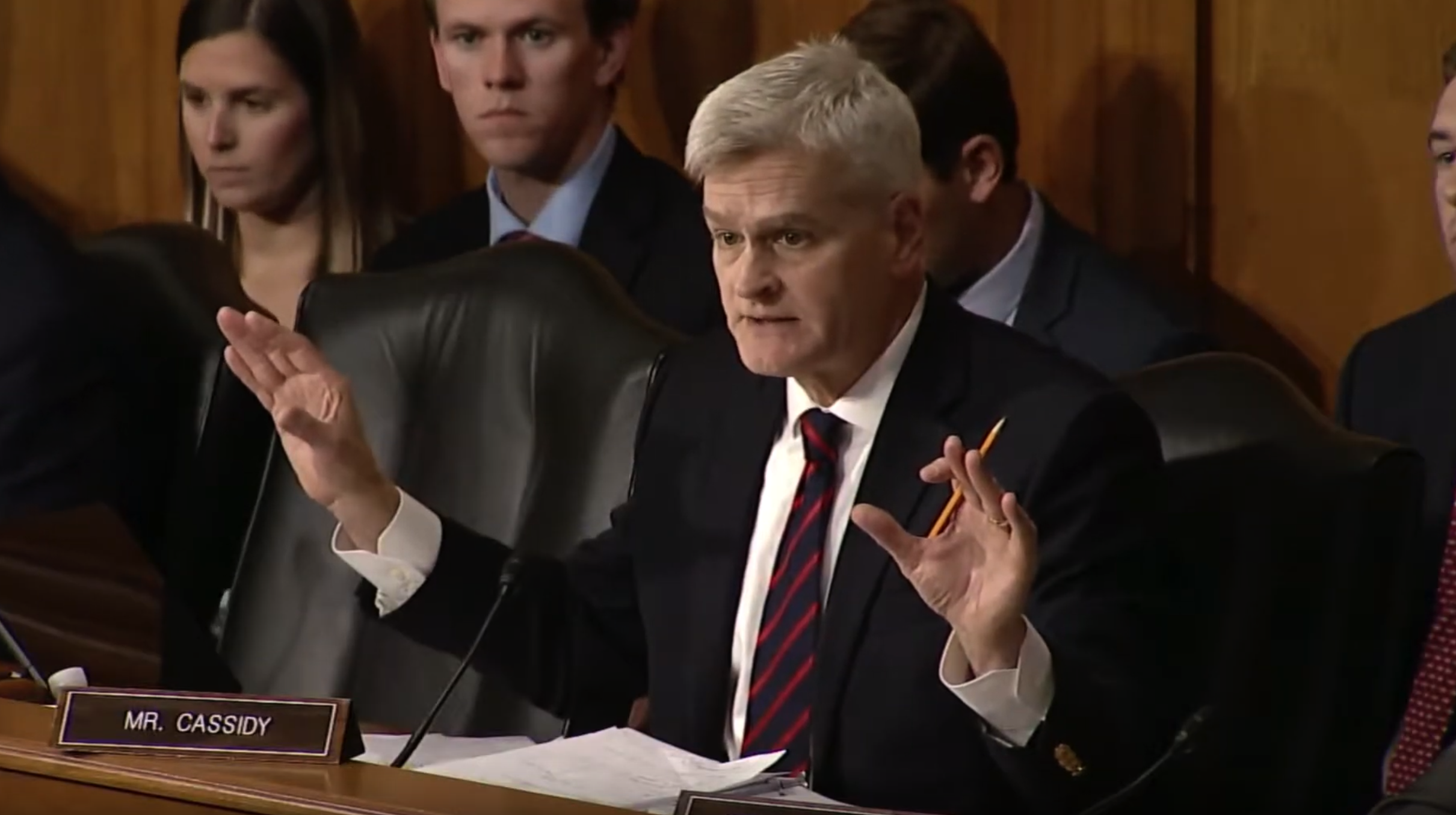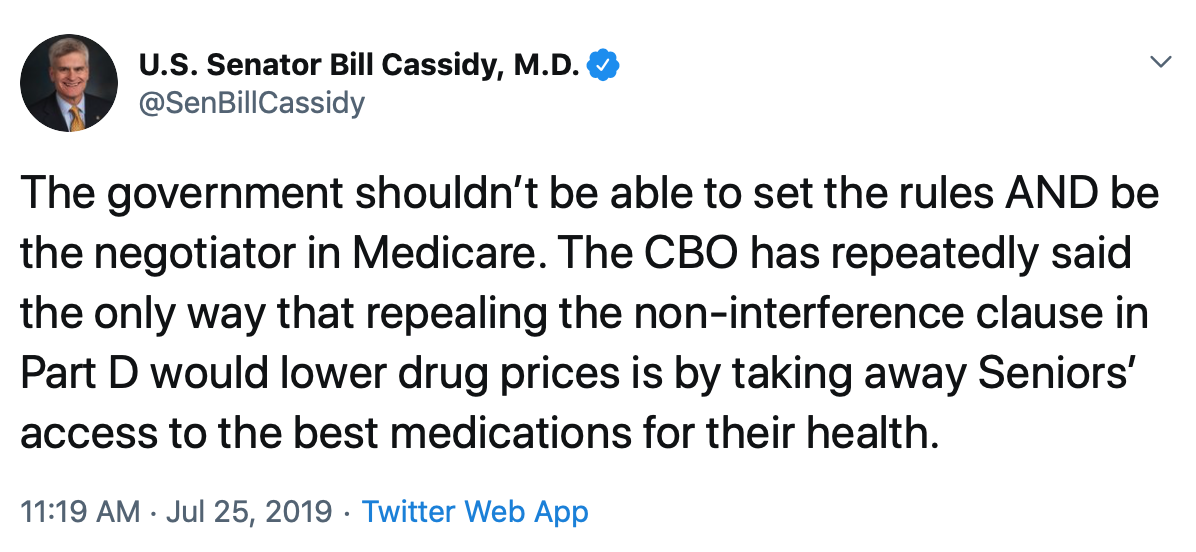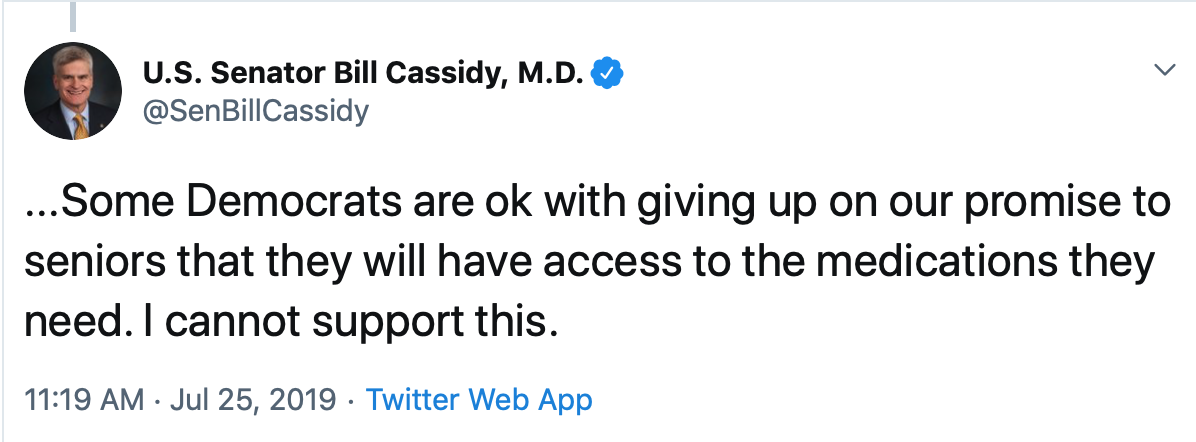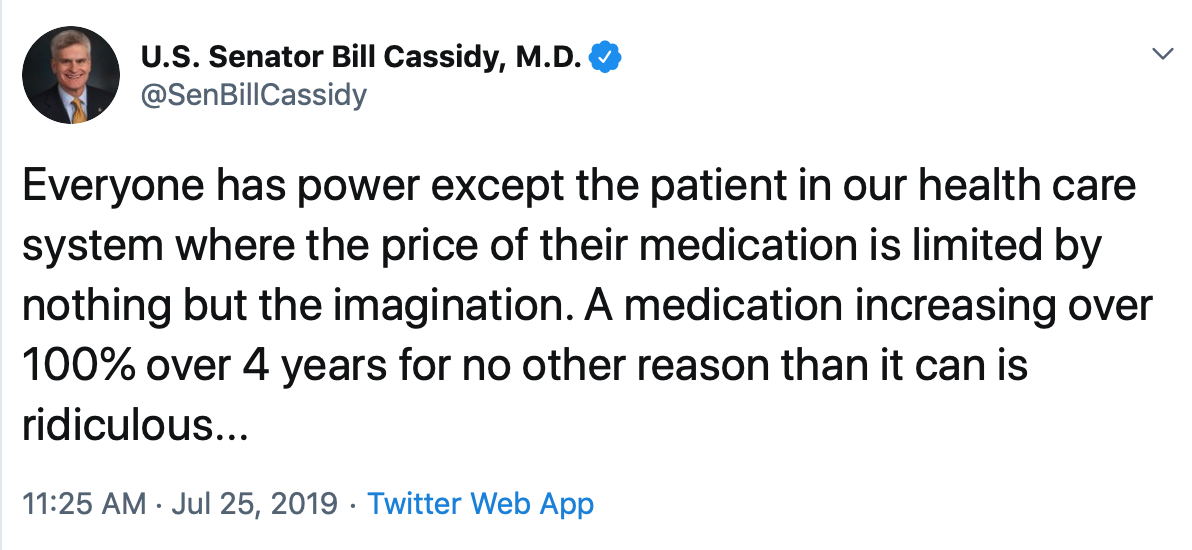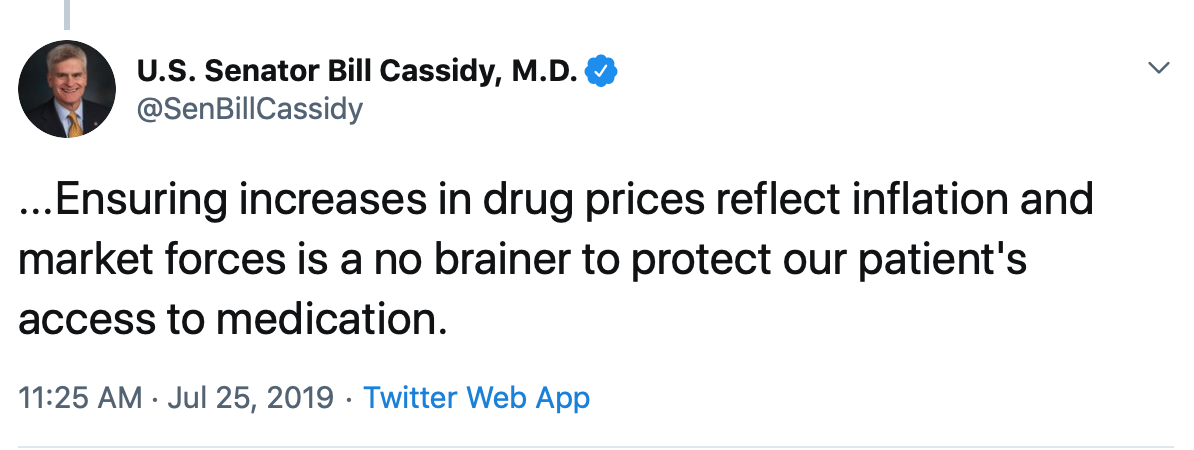WASHINGTON–U.S. Senator Bill Cassidy, M.D. (R-LA) today stood up for seniors’ access to affordableprescription drugs at a Senate Finance Committee hearing. Cassidy helpedpass The Prescription Drug Pricing Reduction Act of 2019 through Committee to saveseniors andtaxpayers $132 billion on the costs of medications.
Watch Cassidy’s full remarks here.
“I approached this problem, Mr. Chairman, as a doctor representing patients, as a senator representing taxpayers. As a doctor I know we need Pharma to innovate, but I also know that if drugs are unaffordable, it is as if the innovation never occurred.
How do we control cost? My colleagues on the other side of the aisle support direct negotiation… I oppose that. The federal government would be both setting the rules and also the negotiator; I think that is unfair. It would give absolute power to the government, and absolute power corrupts absolutely,” said Dr. Cassidy.
“Now what about the inflation caps benefits? I would argue it does have benefits… Because we the taxpayer must pay for whatever they offer, and just like absolute power corrupts the federal government, so absolute power corrupts that pricing, Latuda.
This is an article from Secretary Azar and Seema Verma on cms.gov. Speaking of the Latuda, Latuda’s prices increased by 19% every year from 2013 to 2017, 19%. That’s not innovation, that’s shareholder benefit. That is taxpayers as a captive payer, paying monopolistic pricing. That is not free market,” said Dr. Cassidy.
“Now I’m a conservative who’s for free markets. I reject monopolistic pricing exploiting a captive payer who is a tax payer. So as a doctor representing patients, as a senator representing tax payers, who firmly believes that we have to have a market which works, not a market in which the tax payer and patients are exploited, I think we should unanimously support inflation cap,” said Dr. Cassidy.
Watch full Committee Mark-up remarks here.
Congressional Budget Office (CBO) Score:
- Taxpayers save $85 billion in Medicare: The combination of the Part D redesign and the inflation-rebate policies would save Medicare approximately $85 billion over the 2019-2029 period ($35 billion and $50 billion, respectively).
- Beneficiaries save $27 billion in out-of-pocket costs: The combination of the two policies would reduce beneficiaries’ spending for cost-sharing, also known as out-of-pocket expenses, by approximately $27 billion over the same 10-year period ($20 billion and $7 billion, respectively).
- Beneficiaries save $5 billion in premiums: The combination of the two policies would reduce beneficiaries’ spending on premiums by approximately $5 billion over the same 10-year period ($1 billion and $4 billion, respectively).
- Taxpayers save $15 billion in Medicaid: Clarifying how prices are calculated and increasing the maximum rebate amount in Medicaid save the federal government approximately $15 billion.
- Americans in the commercial market would see savings: The inflation-rebate provision would reduce costs for prescription drug benefits offered by commercial insurance plans and the redesign provision would not have a substantial effect on prescription drug benefits offered by commercial insurance plans.
###
